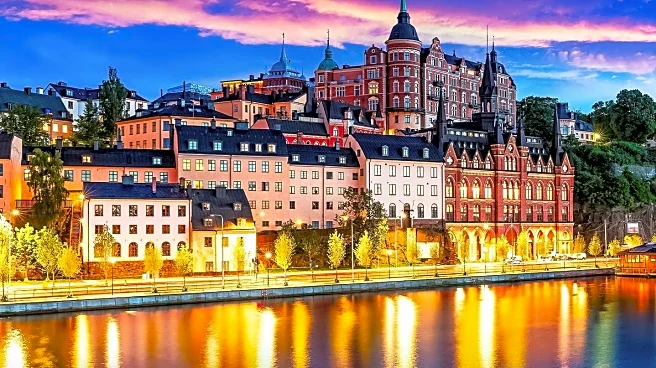What's Happening?
The Swedish concept of 'lagom,' which translates to 'not too little, not too much, just the right amount,' is influencing various aspects of Swedish culture, including travel. This idea promotes balance
and moderation, encouraging individuals to avoid extremes and find happiness in the middle ground. It has been integral in shaping Swedish culture, from work-life balance to home decoration and nature appreciation. Recently, Sweden launched the Stockholm Archipelago Trail, a hiking route that spans 20 islands and 170 miles of rugged landscapes, accessible by public ferry from Stockholm. This initiative aims to apply the principles of lagom to travel, encouraging a slower, more reflective pace that connects travelers with nature.
Why It's Important?
The adoption of lagom in travel reflects a broader cultural shift towards sustainability and mindfulness. By promoting slow travel, Sweden is encouraging tourists to engage more deeply with their surroundings, potentially reducing the environmental impact of tourism. This approach can lead to more sustainable tourism practices, benefiting local communities and preserving natural landscapes. Additionally, the emphasis on balance and moderation can help individuals reduce stress and improve mental health, aligning with global trends towards wellness and self-care.
What's Next?
As the concept of lagom gains popularity, it may influence travel practices worldwide, encouraging other countries to develop similar initiatives that promote sustainable and mindful tourism. The success of the Stockholm Archipelago Trail could inspire further development of eco-friendly travel routes and experiences. Stakeholders in the travel industry, including tour operators and local governments, may explore ways to incorporate lagom principles into their offerings, potentially leading to a shift in how travel is marketed and experienced globally.
Beyond the Headlines
The embrace of lagom in travel highlights a cultural movement towards simplicity and contentment, challenging the fast-paced, consumer-driven mindset prevalent in many societies. This shift could have long-term implications for how individuals approach life, prioritizing experiences and well-being over material possessions. It also raises ethical considerations about the impact of tourism on local communities and environments, prompting discussions on responsible travel practices.









